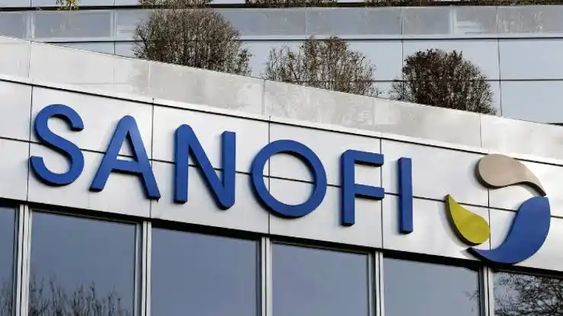Health
Nigeria to lose Sanofi’s polio vaccine production

Sanofi-Aventis Nigeria Limited, a French pharmaceutical business, has declared that it will distribute its products in Nigeria through a third-party arrangement.
The “exciting transformation of its business model in Nigeria” would start in February 2024, the company stated in a letter to clients dated November 7, 2023.
Injectable polio vaccines, along with those for influenza, meningitis, and rabies, are largely supplied by Sanofi.
The letter, which is signed by the country head and general manager of general pharmaceuticals, Folake Odederin, states that the third-party distributor will be revealed at a later time.
The statement states, “Under our new model, a third-party distributor to be named soon will be solely responsible for driving the commercialization of Sanofi’s portfolio of medicines.”
“This strategic move is motivated by our commitment to continuously improve access to our medicines, to better serve our patients and the Nigerian health system, and it represents a significant milestone for our organisation.”
In order “to ensure full transparency,” the company stated it is interacting with its partners, staff, and other important stakeholders.
“Through the media, it will make a public announcement in the coming days,” the company stated.
But since our connection with our stakeholders is so important to us, we wanted to let you know ahead of time about this information.
“Be assured that this change is based on our dedication to giving patients more value—details of our new business model will be disclosed in our media statement.
“We are dedicated to addressing your questions and concerns as much as we can, and we acknowledge that you may have them.”
DIRECT ACTIONS TO QUIT IN NIGERIA
Sanofi’s head of communications and corporate social responsibility (CSR), Africa, Aziz Yousfi Malki, acknowledged that the company is leaving Nigeria, although it will work with another company to distribute its products to Nigerians.
READ ALSO: Experts support the use of the HPV vaccine and criticize the spread of false information
He affirmed Sanofi’s intention to cease direct operations in Nigeria by saying, “Yes, all the Sanofi operations will be transferred to one Healthcare partner.”
“Sanofi will collaborate with a single healthcare provider to carry out its marketing, distribution, quality control, and medical operations in Nigeria.”
WHAT IMPACT FOREX HAD ON THIS CHANGE.
Malki attributed the decision to Nigeria’s economic circumstances, claiming that the country’s foreign exchange issue made it difficult to import medications.
“Divestment in some established products, affecting many countries, including Nigeria, to another pharmaceutical company,” he stated.
Nigeria’s economic situation. The country finds it challenging to acquire medications due to the foreign exchange issue.
Even so, he stated that if the new model works as planned, it will assist the company in reaching patients and the medical community in a more sustainable manner by choosing one reliable partner with a wide geographic reach.
Malki went on to say that Sanofi will keep collaborating closely with this healthcare partner to provide Nigerians with access to therapies.
THE BAKER & MAY DEAL
In the meantime, the European pharmaceutical manufacturer and May & Baker Nigeria inked a collaboration agreement in 2019 to produce four of Sanofi’s trademarks.
The medications comprised anti-infective medications, tablets of Tarivid and Suspension, an anti-malarial medication called Malareich.
Speaking about the agreement, Malki informed TheCable that Sanofi Global, the parent firm, had since sold itself of its production of Flagyl.
In answer to our inquiry concerning May & Baker, this transaction concerned the production of a single commodity, Flagyl. Sanofi Global sold this medication to another pharmaceutical company. It is no longer a Sanofi product. In light of this, May & Baker will seal the agreement.
This year, Sanofi is set to become the second pharmaceutical company to implement a third-party distribution model.
GlaxoSmithKline (GSK) Consumer Nigeria Plc declared in August that it would be closing and handing over its company to an outside entity.
The two businesses released COVID-19 vaccinations that had undergone clinical testing in 2022.
